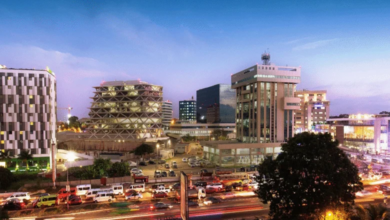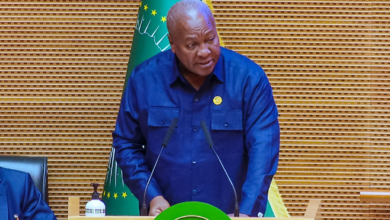
By Grace Waithera*
Africa, often referred to as the “Dark Continent,” has long been plagued by negative stereotypes.
Terms like “primitive,” “third-world,” and “barbaric” have unfairly colored our perception of this vast and diverse land. We tend to see Africa as a charity case rather than a market opportunity. However recently, I set out to rectify my own lack of knowledge about the continent and to understand the market opportunity it represents in all its rich complexity and wealth.
I found out that Africa is the 10th largest economy in the world. But it is a different type of oil and diamonds. Let’s explore how Africa’s wealth, fueled by its 1.2 billion consumers, contributes to its economic rise, keeping in mind the challenges that need to be overcome.
Africa is one of the fastest-growing markets in the world. The market landscape here is every bit as marvelous and surprising as its geographic landscape. Africa has more than 1.2 billion consumers who if well-targeted, are an ocean of profits for global businesses, who will hasten development. Despite the challenges we face every day, 1.2 billion Africans need to eat. We need clean water. We need shelter, clothing, and medicine. We want cell phones, bicycles, computers, automobiles, and education for our children. And because we need all these things, we, the consumers, are the key market potential that the rise of Africa hinges on. Businesses are already seizing these needs, as opportunities to build markets across Africa. The big question is, how do we attract bigger companies to invest in Africa? And once they do, how will they structure prices to fit the 1.2 billion consumer market in Africa?
Challenges on the Path to Prosperity
Despite its wealth potential, Africa faces several challenges:
Poverty-Stricken Nations: While Africa harbors immense wealth, it also hosts some of the world’s poorest countries. These “sick states” pose a threat to the continent’s overall economic stability
(An image of a street in Kibera, Kenya)
Fragmented Markets: Africa’s multitude of small, separate countries complicates efforts to achieve economies of scale. Unlike larger markets, where businesses can thrive, Africa’s fragmentation requires innovative approaches.
Misconceptions: Many assume that business opportunities are concentrated in South Africa and the North, overlooking the potential elsewhere on the continent.
Landlocked Countries: The majority of African nations lack direct access to the sea, hindering trade and economic growth.
However, by establishing essential infrastructure and agreements to foster unity in business, these challenges can be resolved, thereby enticing global business enterprises. Punjab in India for example, is a landlocked country but it has still managed to succeed in business through transportation infrastructure and trade agreements. Similarly, Africa can overcome the myriad of economic, political, legal, medical, and social challenges facing it. In other words, Africa’s speedy rise is only being deterred by these challenges, not because of a lack of resources or market potential.
Unveiling the Engines: Factors Fueling Africa’s Economic Wealth
1. Entrepreneurship: A Driving Force
Africa is a continent full of surprises. Our hardworking nature and in-built relentlessness towards life as Africans, have seen us birth some of the greatest entrepreneurs in various fields, who in private sector efforts to grow their businesses, are making Africa richer.
From cosmetics to clothes, real estate, hotel industries, financial services, and even carbon markets, African entrepreneurs are building up Africa’s wealth. They solve problems. When the Nigerian government banned imports of furniture and clothing, retailer Park n Shop quickly went into the furniture manufacturing business. Take away electricity, and African entrepreneurs will sell generators and inverters. Take away a stable financial system and they will make money speculating on foreign currency. Take away their employment, and they will set up kiosks in the streets. African countries have proven to be remarkably resilient.
2. The Vanguard Generation: Africa’s Youthful Demographics
Africa is running with one of the most youthful populations in the world, hence creating a myriad of business opportunities from school uniforms, to diapers, to education. Demographics bode well for Africa. Whereas Europe’s population is expected to decline by 50 million people in 2050, Africa will add 900 million more people according to the Population Reference Bureau. This means, that Africa will account for even more of the world’s consumers. Hence, considerable attention should be directed towards devising strategies to entice these consumers with affordable prices that can be maintained over time, bearing in mind that unlike nations like Singapore that boast of millionaires left right, and center, Africans are not really that rich. But they are many. And with proper pricing mechanisms, they present a very heavy and steady flow of money.
To demonstrate this, when Irish beer Guinness noticed that global sales had gone down by 4% in 2006, they said that they wanted to expand to Africa to counter the declines in the domestic market. Thanks to a long presence and astute advertising in Nigeria, today Nigerians do not even see Guinness as an Irish brand. Nigeria’s consumption of Guinness beers drove up sales on a global scale.
(Nigeria is one of the world’s largest consumers of Guinness outside of Ireland)
Therefore when you see the future of a brand depending on a continent, then there is something shifting in the world. Similarly, Coca-Cola company sells over 2.2 billion bottles of soda in Africa on a daily. This generates about $4 to $5 billion in system revenues for the company. To appreciate Africa’s rising importance, Coca-Cola moved its African Headquarters from the UK to South Africa.
3. International Investments: Africa’s Market Potential
With so many opportunities at home, why are India and China still targeting Africa?
(Former Kenyan President on the market potential of trade with China)
Because they, as well as African leaders, recognize the market potential that African consumers hold. They also realize that the demographics of Africa and its challenges are not so different from those back home. Therefore Africa from an economic standpoint, is worth the shot. China’s trade with Africa has risen from about $10 billion in 2000 to $258 billion as of 2022, according to the Global Development Policy Centre. Although political unrest has been an issue, business tends to bounce back quickly, further showing the massiveness of the market potential. In 2007 for example, Kenya experienced terrible post-election violence that massacred over 1200 people and displaced over 30,000 Kenyans. As soon as political rivals Kibaki and Raila settled the discord, the tourism sector spiked quickly. Additionally, the planned IPO of Safaricom in 2008 sparked an ‘’IPO Fever’’ that brought in many first-time investors like kiosk owners and taxi drivers. The communication and banking industries are also creating the infrastructure for international business development. It may be easy to fail to see the meaning of the rise of cell phones in Africa, but it is greatly improving the foundation for small businesses and connecting rural areas to the rest of the world.
4. Private Equity’s Role
Private equity is flowing into the continent at record rates, and the returns on investment (ROI) are impressive. Emerging Capital Partners (ECP) – one of the largest private equity managers, is targeting Africa, with over 40 investments in over 30 countries in Africa. Private Equity is allowing local successes to become multinationals. In Tanzania, Sumaria Group was helped by Aureas Capital to expand its business to Kenya, DRC, Mozambique, and Congo. AfDGB on the other hand contributed $53 billion in Africa using local banking partners to invest in small to mid-size firms.
The signs of Africa Rising are apparent from almost every measure like GNI per capita, improving business conditions, high growth rates, and rising investments. But the numbers only tell part of the story. Reaching the African market means having the right products at the right prices. There are also some other factors that we never consider and we should, to maximize Africa’s potential, such as the impact of religion on businesses. Easter on its own, accounts for 1% of sales by SAB Miller in South Africa, while Ramadhan is the prime shopping season in Morocco and other parts of North Africa.
(Overview of Private Equity Investment in Africa as of 2023)
When evaluating rising opportunities, leaders and entrepreneurs need to therefore ask themselves the following questions:
- Given the relative attractiveness of the African market, are you giving it enough attention?
- How does your strategy in Africa compare with strategies in China or India?
- What opportunities are created by the development of cell phones, transport, and banking?
Unlocking Africa’s Economic Potential: Strategies for Organizing and Harnessing the Market
The African market, despite its immense potential, often operates informally and lacks the structure necessary for sustained growth. To create opportunities and tap into this vibrant landscape, businesses must strategically address these challenges in the following ways:
1. Formalizing Retailing and Branding
2. Efficient Transportation and Distribution
3. Broadening Business Perspectives
4. Embrace Blockchain and Cryptocurrencies
5. Infrastructure Development
6. Support for SMEs
7. Education and Skills Development
In closing, I hope that this article expresses the strong sense of optimism that there is, concerning Africa’s rise. Let us embrace the boundless possibilities that Africa’s economic landscape presents. As we witness Africa’s rise, fueled by its youthful dynamism, entrepreneurial prowess, and increasing global partnerships, let us continue to explore, innovate, and collaborate. Together, we pave the way for a brighter economic future across the continent.
*Grace Waithera
Financial Engineer | WALLSTREET| Financial Risk Management | Investment banking | AI | Blockchain Technology| Stock markets | Real estate.






